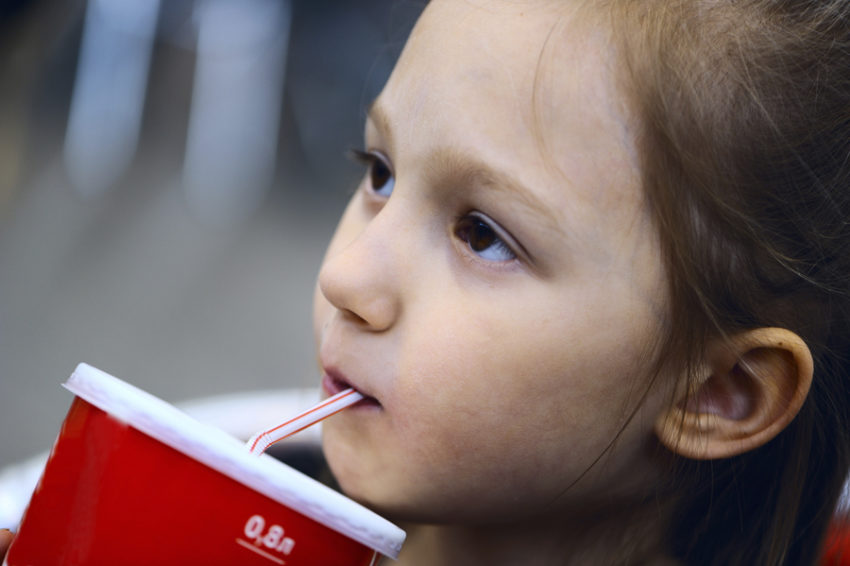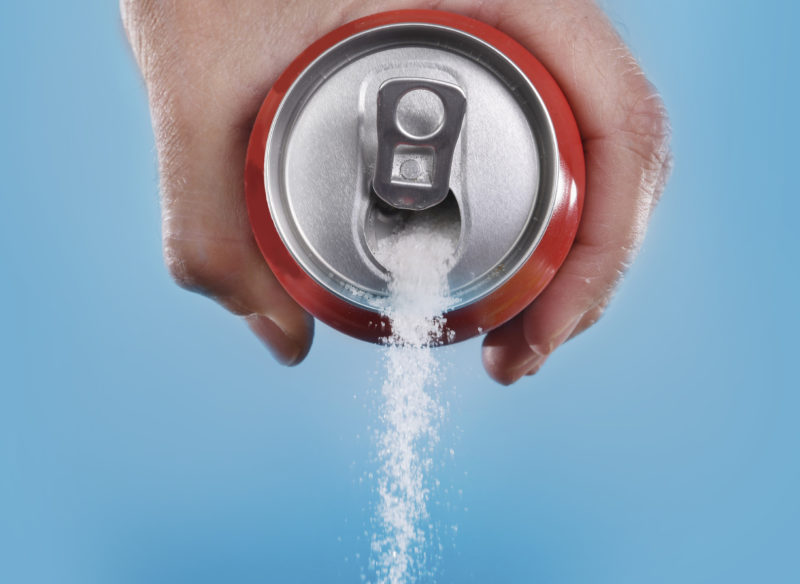
Share On Social!
A controversy is growing over sugary drinks and their impact on health in largely Latino San Antonio, Texas.
Sugary drinks recently surged into the national spotlight with emerging research on the link between too much dietary sugar and health issues like diabetes and obesity, and the growth of sugary drink pricing initiatives by cities to cut consumption and increase revenue for health promotion programs.
 These issues have prompted push-back by the beverage industry.
These issues have prompted push-back by the beverage industry.
That push-back reached San Antonio, where beverage industry reps and health advocates sparred over local health, fueled by research by Salud America!, the Latino childhood obesity prevention network at UT Health San Antonio.
Obesity and diabetes are grave local and national health concerns with no single cause, and no single cure.
“But you simply cannot have a serious discussion about diabetes and obesity without addressing sugar consumption broadly and sugary drinks specifically. That would be akin to trying to prevent lung cancer without discouraging smoking,” said registered nurse Suzanne Lozano, a 34-year health care industry worker.
How did this controversy start?
The Beginning
On Dec. 5, 2016, San Antonio news outlet the Rivard Report published a commentary on new research about the health impact of sugary drinks among Latino kids.
The commentary, by Rosalie Aguilar, coordinator of the Salud America!, examined scientific research about sugary drinks.
For example, she cited a study that found that being Latino and drinking sugary beverages at least once a week were associated with 2.3 times the odds of severe obesity in kindergarten.
“The ages of 0-5 years are crucial to a child’s social, emotional, and physical well-being,” said Dr. Amelie Ramirez, director of Salud America!, in the commentary. “Lessening children’s consumption of sugar in these early years would help decrease their risk of developing unhealthy weight, diabetes, and heart disease.”
Beverage Industry Steps In
Days after Aguilar’s commentary, Katherine McLane of the Texas Beverage Association published a rebuttal commentary in the Rivard Report on Dec. 11, 2016.
The commentary shifted blame from sugary drinks by stressing the multiple factors that affect the obesity epidemic.
McLane also noted what the beverage industry is doing to help cut sugar consumption in the American diet, such as awarding local grants to fund obesity prevention programs, partnerships to promote water, and the American Beverage Association’s Balance Calories Initiative.
For the initiative, McLane says “our companies are driving a reduction in the sugar and calories consumed from beverages across the U.S. and engaging with prominent public health and community organizations in this effort. Our goal is to reduce by 20% the beverage calories consumed per person nationally by 2025.”
Health Advocates Respond
The rebuttal commentary is an indication that “big soda is clearly desperate,” according to a follow-up commentary in Rivard Report on Dec. 20, 2016, by Dr. Thomas Schlenker, a pediatrician and former director of the San Antonio Metropolitan Health District.
 Schlenker’s commentary suggests that San Antonio increase local sugary drink prices to decrease consumption.
Schlenker’s commentary suggests that San Antonio increase local sugary drink prices to decrease consumption.
He cites successful pricing changes in several locales, including the nation’s first sugary drink tax in Berkeley, Calif.
“During the first year of its tax in Berkeley, soda consumption dropped dramatically, especially in lower income neighborhoods,” Schlenker wrote. “At the same time, $1.5 million in tax revenue was collected to be reinvested in those same neighborhoods. San Antonio’s decline in obesity from 2010 to 2012 in parallel with declining soda drinking also demonstrates the strong connection between the two.”
Lozano, who is currently a member of the American Heart Association’s State Advocacy Committee, added her own commentary in Rivard Report on Dec. 26, 2016.
Lozano notes that Salud America! is focusing on multiple factors behind Latino childhood obesity—not just sugary drinks—and cites efforts by the Bexar Healthy Beverage Coalition to offer evidence-based information on the health effects of over-consuming sugar to help individuals to make their own informed decisions on what is best for their body.
She wrote there is “overwhelming scientific evidence” that added sugar consumption contributes heavily to diabetes, heart disease, tooth decay, and some cancers.
“We cannot continue to over-consume sugar and remain a healthy, fit, and productive nation,” Lozano wrote. “While there are no magic bullets to achieving ideal health, there are a number of smart and easy steps consumers can take to modify their behavior. Reducing or eliminating sugary drinks from diets would be a great first step.
The San Antonio Express-News editorial board also wrote that the new Salud America! research is cause for change because “sugary drinks are killing us.”
What Do You Think?
Comment below and let us know what you think about this San Antonio and national debate on sugary drinks.
Or email us at saludamerica@uthscsa.edu!
By The Numbers
74
percent
of Latino kids have had a sugary drink by age 2 (vs. 45% of white kids)



